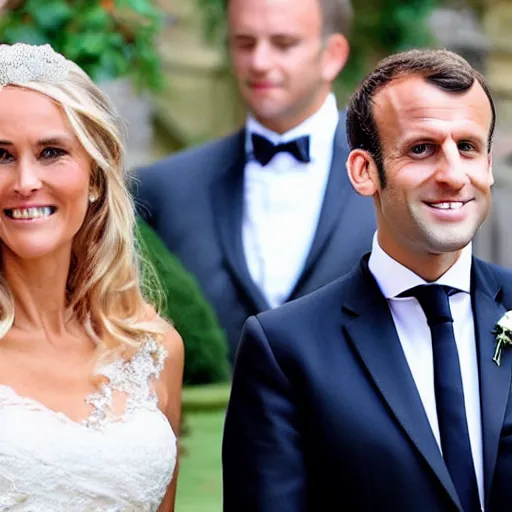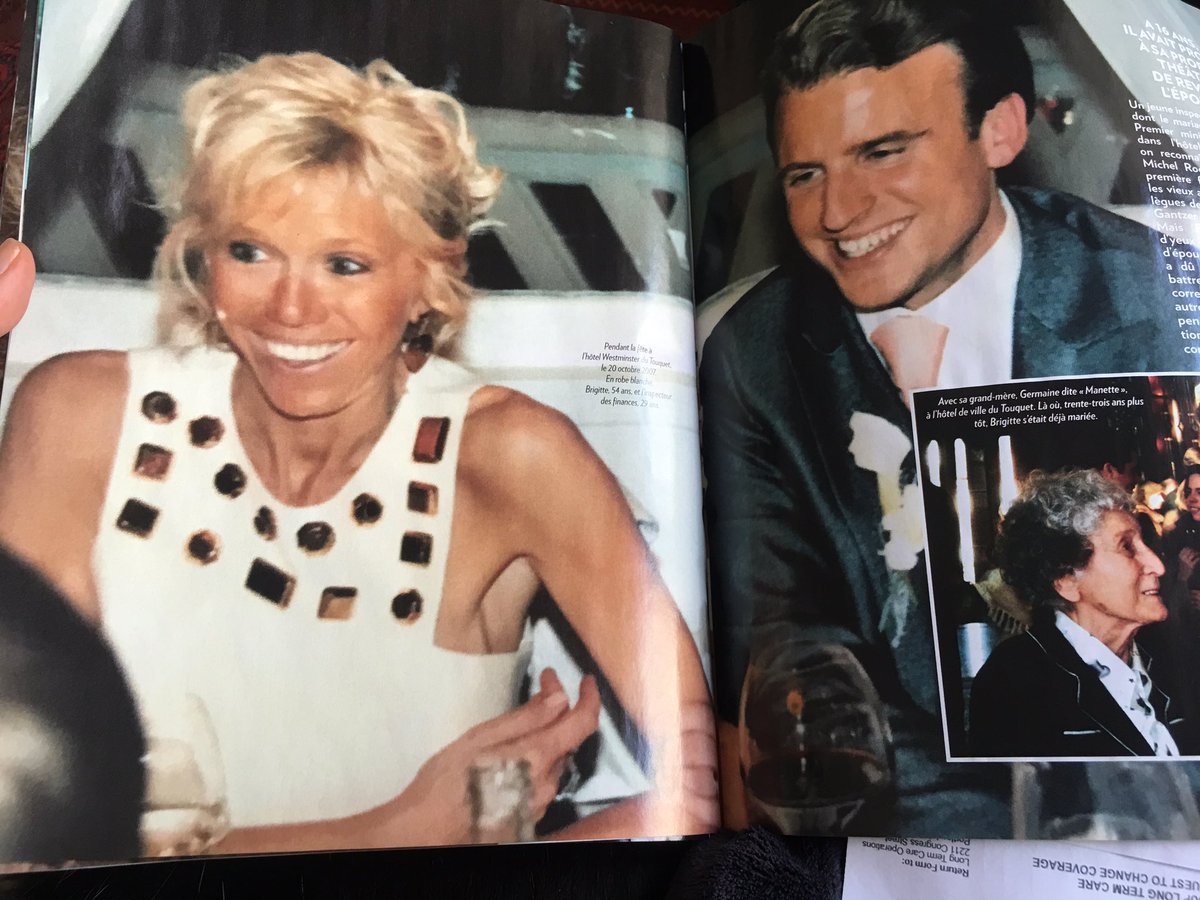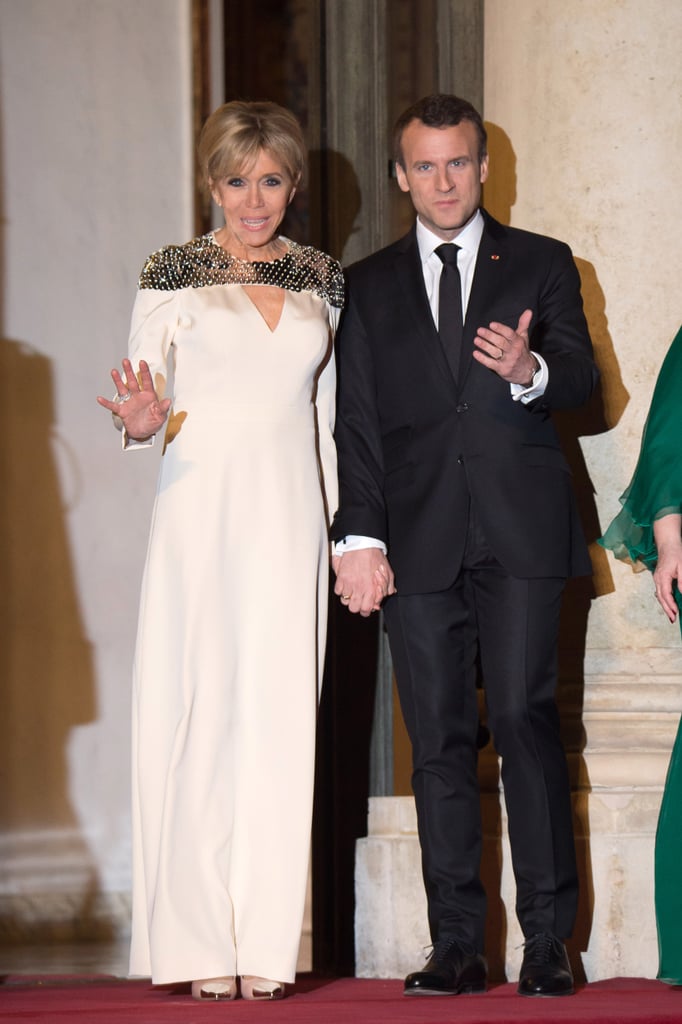Was it a wedding that defied expectations, a union that whispered of unconventionality, or a testament to enduring love against the backdrop of political life? Emmanuel Macron's wedding day, though shrouded in a degree of privacy, remains a fascinating lens through which to examine the man and the forces that shaped his ascent.
The union of Emmanuel Macron and Brigitte Trogneux, a romance that blossomed during his formative years, is a well-documented story. Their relationship, marked by a significant age gap, captured the attention of the public, and their eventual marriage was more than a personal celebration; it was a statement. It challenged conventional notions of love and partnership, and set the stage for a political career unlike any other in recent French history. This wasn't just a wedding; it was the public debut of a relationship that would be instrumental in shaping the identity of a future president. But details surrounding the actual event, the specifics of the day itself, are often less readily available than the broad strokes of their courtship. Digging beneath the surface, however, reveals a day that, while private, undoubtedly reflected the personalities involved and hinted at the unconventional path ahead.
| Full Name: | Emmanuel Jean-Michel Frdric Macron |
| Date of Birth: | December 21, 1977 |
| Place of Birth: | Amiens, France |
| Spouse: | Brigitte Macron |
| Children: | None (Stepson: Sbastien Auzire; Stepdaughters: Laurence Auzire-Jourdan, Tiphaine Auzire) |
| Education: |
|
| Career: |
|
| Political Affiliation: | La Rpublique En Marche! (LREM) |
| Notable Achievements: |
|
| Reference: | Official Website of the President of France |
The wedding took place on October 20, 2007, in the town of Le Touquet-Paris-Plage, a seaside resort in northern France. This location was significant; it wasn't a sprawling Parisian chateau, nor was it a location that screamed of overt political ambition. Le Touquet, a place often associated with family holidays and a more relaxed atmosphere, suggested a desire for a degree of normalcy, a space away from the pressures of the political arena, at least for that one special day. It was a choice that spoke volumes about their personal priorities, a desire to keep their private life distinct from the public one. This detail alone provides valuable insight into their character and the values they wished to project. The choice of venue suggests that, even at the outset, the couple sought to maintain a sense of privacy and intimacy.
The ceremony itself was held at the town hall of Le Touquet. Details of the ceremony are carefully guarded, but it's likely that it was a relatively intimate affair, attended by close friends, family, and perhaps a few carefully selected guests. This carefully constructed privacy mirrors the way the couple has handled their relationship throughout their time in the public eye. The focus has always been on what matters most: their bond and their personal lives. The choice of a civil ceremony at the town hall, rather than a grand religious celebration, reinforces this notion. It emphasizes the legal and social commitment, a pragmatic approach that aligns with Macron's forward-thinking worldview. The absence of a religious ceremony also avoids any unnecessary controversy, presenting the couple as modern and inclusive.
Brigitte Trogneux, a woman who had been Macron's teacher at the Collge de la Providence in Amiens, and a figure of considerable strength and experience, wore a simple, elegant dress. The style of her dress, likely chosen with understated elegance, would have served as a statement. It was a reflection of her personality and her own sense of style. The absence of ostentation was key. It signified a rejection of the excesses that can sometimes be associated with wealth or celebrity. The focus, instead, was on the union itself. The specifics of her attire, though, are secondary to the underlying message: a mature, well-considered presentation. It was also a deliberate choice to avoid competing with Macron's image, allowing him to shine as the groom. The selection of her dress was a careful balance of grace, poise and, again, discretion.
The wedding was, in many ways, a symbol of the strength of their relationship. The age gap was a constant topic of discussion. However, on that day, it wasnt the defining characteristic. What mattered was the commitment, the love, and the determination to forge a life together. The fact that they had successfully navigated societal expectations and cultural norms, to arrive at this point, said a lot about their character. It underscored their ability to stand firm in the face of adversity. The wedding was a declaration of their commitment. It signaled a readiness to embrace the future together, whatever challenges it might bring. The day highlighted their remarkable journey.
While details of the reception remain scarce, it likely reflected the couple's preference for intimate gatherings. The guest list was probably selective, comprised of those closest to them. The setting would have been chosen to create a warm and welcoming atmosphere. The focus was not on extravagance or public display, but on creating a space for shared joy and genuine connection. The nature of the reception, while unknown in detail, gives insight into their approach to private celebrations. Their choice of guests and venue provides insights into the couples preferences.
The wedding day provided a glimpse into the couple's broader approach to life. Their desire for privacy and intimacy, their rejection of ostentation, and their focus on their relationship, all informed this one special day. The wedding was not just a celebration; it was an embodiment of their values. It was a carefully crafted reflection of who they were and how they wished to be seen. It represented an early and very important chapter in their story. The day underscored the importance of their bond. It established the foundation upon which they would later build a life and a career.
The wedding of Emmanuel Macron and Brigitte Trogneux was a pivotal event. It was a statement, a declaration of love, and a testament to their resilience. The event set the stage for Macron's political ascent. It offered a glimpse into the private life of the future president and his spouse. The wedding showcased their shared commitment. It highlighted the power of their bond. The wedding was a precursor to the challenges and triumphs that lay ahead. It remains a significant moment in their story. The day was a reflection of their values, paving the way for a political career unlike any other.
In the years since the wedding, the couple has maintained a certain level of privacy. The wedding day serves as a reminder of their commitment to each other. The carefully constructed public image and the carefully chosen details speak volumes. Their story has become a symbol of their union. The story emphasizes their values and their approach to life.
The weddings understated elegance, the location's embrace of privacy, and the focus on their relationship are hallmarks of the Macron story. These components create a very intimate portrait. The day's significance extends beyond the personal. It reveals something of the core beliefs of the man who would lead France. Their wedding was a reflection of their character. Their approach to the wedding reflected their approach to life. That single day was and remains a crucial element.
The choices made for that day, from the location to the guest list, reveal a couple intent on shaping their own narrative. The wedding was a declaration of their love. The day was the start of a unique journey. The wedding was a key moment in French political history. This wedding and all its careful planning gives us clues to the couples approach to the future, a future in which their commitment would be tested in public and private. It also provides a framework for understanding Emmanuel Macron, and the forces which shaped the man, and the president he would become.


